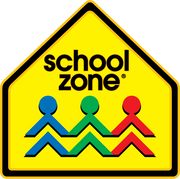Open kids’ hearts and minds to the power and joy of kindness, and they will see the difference they can make and be all 365 days each year.
Kindness campaign continues long-time momentum
Since its initiation by the Denver-based Random Acts of Kindness Foundation in 1995, Random Acts of Kindness Day, occurring midway through a week-long recognition event, has grown. Last August the Foundation added a downloadable School Kindness Calendar to its workplace and general calendars. The Foundation also encourages becoming a RAKtivist®—a Random Acts of Kindness activist, saying that we can think of RAKtivists as being “like kindness ambassadors.”
This year's website for Random Acts of Kindness Day features, among other events, a coloring contest for a chance to win an "RAK Day SWAG package" (poster, sticker, lapel pin and a 2022 Kindness Calendar).
Being kind benefits both giver and receiver
Yes, kindness is the way to treat others, but clearly it’s also a win-win. Those who extend kindness to others, reap benefits themselves. In July '20, VeryWell Family published “7 Random Acts of Kindness for Kids: Make Kindness a Habit in Your Family,” by Amy Morin, LCSW. She cited studies showing that “kids who engage in random acts of kindness are more likely to be accepted by their peers,” adding that “Their good deeds improve their well-being and help them develop positive perceptions of their world.”
The article suggests gestures such as donating toys and clothing, making homemade gifts, preparing and delivering a meal for an elderly friend or neighbor. But Morin also says, “Random acts of kindness can be as simple as saying something nice to someone.” The article urges teaching kids to offer people compliments and praise their efforts.
Recognizing feelings, our own and other people's, is essential
As we might expect, kindness and empathy—the ability to imagine what someone else is going through—while separate traits, are closely related.
To foster both empathy and kindness, it’s also important to begin talking to toddlers and preschoolers about emotions and recognizing their own and other people’s feelings. Activities on the online learning app Anywhere Teacher, such as “Introducing Emotions,” "Learning About Emotions,” “Describing My Emotions,” “What’s that Feeling?” and “Identifying Emotions with Charlie [the Golden Retriever],” are great resources for little ones.
Another activity titled, “I Can Help Others,” brings together empathy and kindness; it presents illustrations of different situations, and asks, “What would you do?”

Reading can develop empathy
If there weren’t already dozens of compelling, evidence-based reasons for getting kids reading early and often, add empathy-building to the list. In a Discover Magazine article titled, “How Reading Fiction Increases Empathy and Encourages Understanding,” Megan Schmidt reports that “Fiction has the capacity to transport you into another character’s mind, allowing you to see and feel what they do. This can expose us to life circumstances that are very different from our own.”
She also quotes William Chopik, a psychologist at the University of Michigan, who says, “Fiction and stories do a lot of things for us.” Among them he says, “They expose us to uncomfortable ideas…and provide us with the opportunity to take other peoples’ perspectives in a safe, distanced way.” He concludes that “In that way, fiction serves as a playground for exercising empathic skills.”
A Different Tune, a Level 3 Storybook from the Start to Read! series, opens with “Once upon a time, in a land far away, everyone looked alike and did things the same way.” Kids learn that being different from everyone else can be a wonderful gift.
 In the iOS e-book from the same series, Benny’s Baby Brother, a big brother changes his mind about the newest family member, learning that we can both change and manage our feelings instead of our feelings managing us.
In the iOS e-book from the same series, Benny’s Baby Brother, a big brother changes his mind about the newest family member, learning that we can both change and manage our feelings instead of our feelings managing us.Shifting a child's focus from now and me
Why is it so essential to teach and model kindness and empathy? Another Verywell Family article titled, “Ways to Teach Your Kids Kindness: How You Can Teach Kids to Be Kind to Others (and Why You Should),” notes that kids “tend not to think too far ahead” and are also naturally self-centered, meaning “they aren’t always able to put themselves in someone else’s shoes.” It goes on to offer some great tips and wraps up by saying that “When you encourage kindness in your child, they will feel better not only about the world they live in but also about [themselves].”
In honor of Random Acts of Kindness Week/Day and beyond, consider posting this wonderful anonymous saying somewhere prominent: “Kindness: it costs nothing but means everything.”










